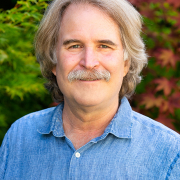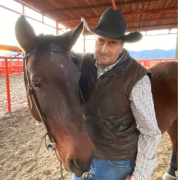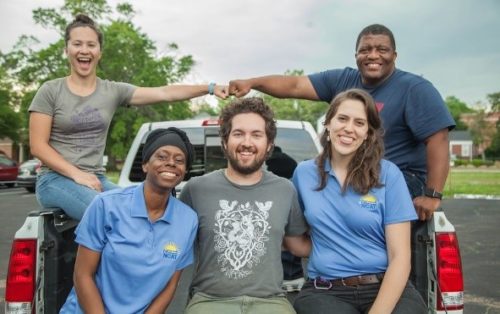The National Center for Appropriate Technology has opened registration for its Soil Health Innovations Conference: Soil for Water, March 15 and 16.
The two-day conference will convene online, and the highly interactive format will connect agricultural producers and educators in a critical conversation about soil health. As was the first conference, it will be an in-depth exploration of agriculture’s sustainable future: on-farm practices, soil biology, carbon markets, and public policy. This year’s conference will focus on farm and ranch strategies to catch and hold more water in the soil.
“The inaugural Soil Health Innovations Conference last spring really exceeded our expectations,” said NCAT Executive Director Steve Thompson. “We were especially struck by the engagement of the participants, both during the conference and afterward through NCAT’s ATTRA sustainable agriculture program. It goes to show that we live in a time when producers and food companies, as well as policy makers, realize how important healthy soils are as we design practical approaches for supporting resilient regenerative agriculture.”
The conference will bring together leading experts and innovative farmers from around the U.S. to share the latest in soil science, best practices in soil management, opportunities for policy change, and the emerging technologies that will drive the future of sustainable and regenerative agriculture. Two sessions will focus on the potential to reduce downstream flooding through watershed-scale soil health practices. Keynote speakers will include University of Washington and Dig2Grow’s David Montgomery and regenerative rancher Alejandro Carrillo.
This year’s theme, Soil for Water, expands on NCAT’s nationwide effort of the same name to connect a growing network of regenerative farmers, ranchers, and land managers who are taking steps to catch and hold more water in the soil.
In addition, since one of the best parts of any conference is the chance to greet old friends and make new acquaintances, the conference will have virtual networking tables that allow participants to get together with each other, speakers, and NCAT staff.
There also will be virtual halls where participants can connect with exhibitors and conference sponsors.
Don’t miss this chance to examine current practices as well as the concepts, techniques, and practical applications that may be available in the future. Register to attend the conference, exhibit or sponsor the event at SOILINNOVATIONS.NCAT.ORG.
Keynote Speaker: March 15
 David R. Montgomery, University of Washington and Dig2Grow.com
David R. Montgomery, University of Washington and Dig2Grow.com
Growing a Revolution: Bringing Our Soil Back to Life
“Soil may be the least sexy resource upon which civilization depends, yet soil erosion and degradation have plagued societies in the past and pose challenges for feeding the future. Growing a Revolution relates visits to farmers around the world at the heart of a brewing soil health revolution that cuts through standard debates about conventional and organic farming.”
See David Montgomery’s biography.
Keynote Speaker: March 16
 Alejandro Raul Carrillo, Las Damas Cattle Ranch
Alejandro Raul Carrillo, Las Damas Cattle Ranch
Regenerative Grazing to Reverse Desertification
Using regenerative grazing techniques over the past several years, Alejandro dramatically increased the water filtration of his ranch in the Chihuahuan Desert 250 miles south of El Paso, Texas.
See Alejandro Carrillo’s biography


